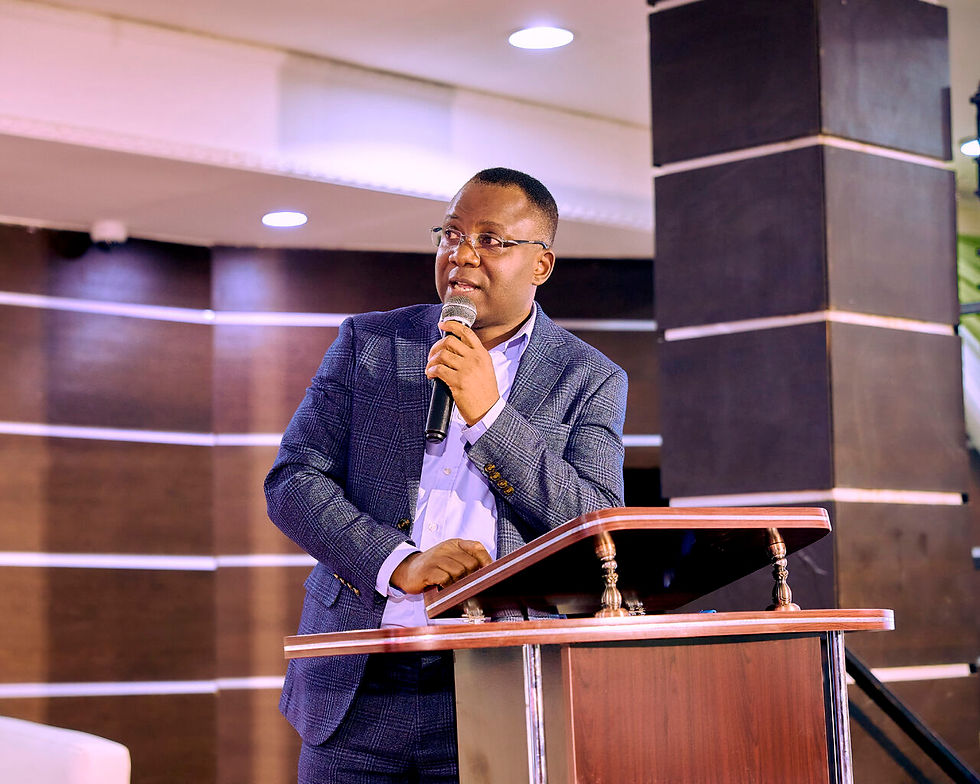Indigenous practices for collective Prosperity: the OKOBI initiative in Nigeria
- kennethamaeshi6
- Oct 2, 2024
- 3 min read
In early 2023, the Imo State Government in southeastern Nigeria launched the One Kindred One Business Initiative (OKOBI), an economic development program designed to foster prosperity through community-based enterprises. Under the leadership of Senator Hope Uzodimma, the Governor of Imo State, OKOBI taps into traditional Igbo socio-economic structures, known as Umunna or kindred systems, to promote collective business ownership. The Igbo people, one of the largest ethnic groups in Africa, are primarily found in southeastern Nigeria, where communal living and mutual support have long been central to their culture.
Spearheaded by Nigeria-born Professor Kenneth Amaeshi, Chief Economic Adviser to the Imo State Government and Chair in Sustainable Finance and Governance at the European University Institute, the initiative leverages indigenous practices for sustainable and inclusive growth.

Drawing on Amaeshi’s research in Africapitalism—a philosophy that promotes African-led entrepreneurship and development—OKOBI positions itself as a model for sustainable and inclusive growth through community-led ventures.
In Amaeshi’s words: “Imagine an economic development agenda that is not fully dependent on the government, where the smallest units of society can effectively collaborate for collective economic empowerment.”
What is OKOBI?
OKOBI stands for One Kindred One Business Initiative, a program that capitalizes on the longstanding African tradition of kindreds—small, tight-knit communities—working together for mutual benefit. By encouraging these groups to create cooperatives and formally register businesses, OKOBI helps them harness their collective resources and entrepreneurial spirit. Unlike individual business ventures, these community-owned enterprises offer lower risks and distribute financial burdens among members.
To qualify as an OKOBI business, ventures must adhere to several key criteria. First, the business must be collectively owned by the kindred, ensuring group ownership. Second, it should aim for financial sustainability, making it profit-oriented. Additionally, all businesses must be legally registered to ensure legitimacy. They should also address the local community’s social and economic needs by providing employment opportunities. Finally, the business must be based in or prioritize Imo State, affirming its commitment to the region.
Empowerment Through Africapitalism
A key feature of OKOBI is its alignment with Africapitalism, a philosophy championed by Professor Amaeshi, which promotes African-led entrepreneurship as a pathway to development. This approach emphasises that businesses should not only aim for profit but also for societal benefits, such as reducing poverty and enhancing well-being.
By fostering community-owned businesses, OKOBI embodies the principles of Africapitalism. The initiative encourages collective efforts to solve shared problems, thus lessening dependence on top-down government interventions. As Nigeria grapples with high unemployment and economic instability, OKOBI’s model of communal business ownership offers a promising pathway to sustainable development.
The Resilience of Collective Enterprises
Historically, the Igbo culture of communal living and mutual support has been a powerful tool for survival and resilience. OKOBI builds on this tradition, allowing kindreds to pool resources and create businesses that reflect their shared interests. The result is not just a reduction in entrepreneurial risks but also the creation of a sustainable economic framework that is deeply rooted in local culture.
These collective enterprises can range from cassava farming to beekeeping, providing a diverse array of business options for communities. By sharing the responsibility and financial risks, kindred businesses are more resilient and adaptable to market changes, making them better suited to withstand economic challenges.
Nigeria as a Model for Collective Economic Development
OKOBI’s success in Imo State highlights the potential for grassroots economic initiatives to transform local economies across Africa by providing jobs, fostering social cohesion, and driving sustainable growth.
The government’s backing of OKOBI further signals a commitment to inclusive economic policies. In August 2024, the Imo State government made the OKOBI program mandatory for all autonomous communities. This move underscores the government’s dedication to expanding the reach of community-driven businesses and creating a robust economic landscape.
Looking Ahead
The future of OKOBI is making strides in reshaping the economic narrative in Imo State and beyond. With its recent establishment as a mandatory programme for all communities in Imo State (in August 2024), there is strong momentum building towards greater participation and investment in collective business ventures. Furthermore, The New Institute in Hamburg, Germany, has just launched a research project on OKOBI, which started this September. This research project, led by Professor Amaeshi, will document lessons from OKOBI in Imo State for similar contexts in and outside Africa. In addition, the initiative will be presented on 23 September 2024 at the UN Global Compact forum, showcasing its potential as a transformative model for economic development.







Comments